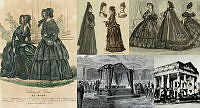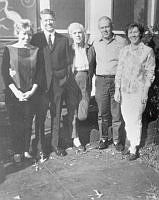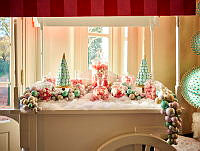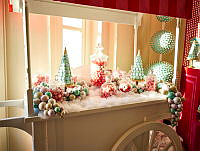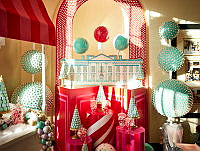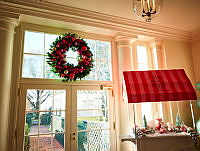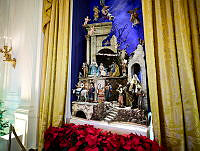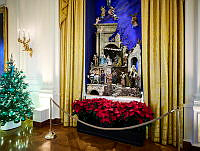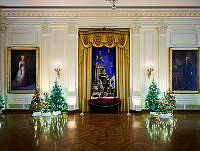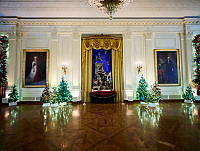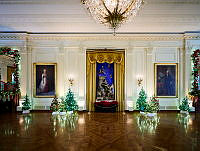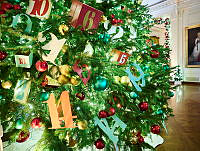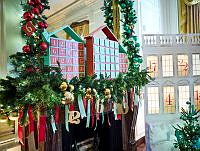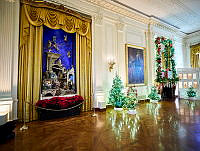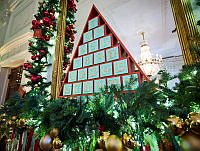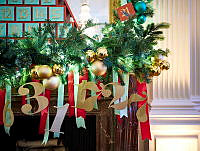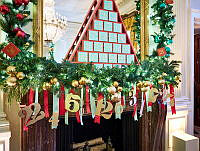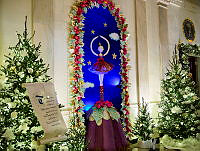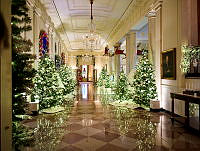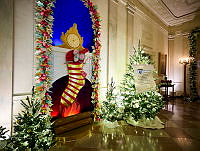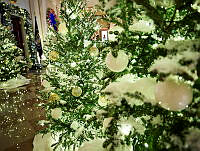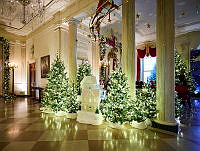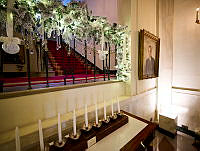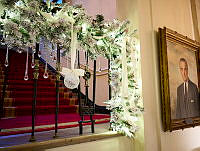An Essay on "A Bird that Whistles" by Peter Waddell
In Jefferson's Cabinet, 1803
Copyright © White House Historical Association. All rights reserved under international copyright conventions. No part of this article may be reproduced or utilized in any form or by any means, electronic or mechanical, including photocopying, recording, or by any information storage and retrieval system, without permission in writing from the publisher. Requests for reprint permissions should be addressed to books@whha.org

Peter Waddell, A Bird that Whistles, oil on canvas, 48 x 60.
Peter Waddell for the White House Historical AssociationPresident Thomas Jefferson took office on the then-Inauguration Day of March 4, 1801, following a party win in the contentious campaign of the previous autumn, and the bitter congressional balloting that followed in January and February to determine between Jefferson and Aaron Burr, who would be the president and who the vice president.
From the beginning Jefferson had thought the President's House too grand, so when it became his home he cut it down to size in use. This room, a formal levee or reception room under Adams, Jefferson converted into his office. In re-creating it, the artist has selected from among Jefferson's actual furnishings. Beneath a lofty, eighteen-foot ceiling the president has left the polished floors bare and has scattered his interests over the room maps, experimental potted plants in the windowsills, a surveyor's telescopic theodolite, and of course books. The bird that flies so familiarly about is a mockingbird befriended by Jefferson and taught to communicate by whistling.
Among Jefferson's prime interests for the nation was the unexplored west, most of which was not yet in American hands. We see him here in 1803, the year of the Louisiana Purchase, before news of that great event came in July. The rugged outdoorsman, Meriwether Lewis, who stands before him, was 28 years of age, at the White House ostensibly as his secretary but in fact there to study under the president for a secret expedition overland to the Pacific ocean, perhaps to find the Northwest Passage by sea to Asia; but more to gain intelligence about the country. They met daily. At last, when the surprising news of the Louisiana Purchase reached the White House, Jefferson appeared on the front steps on the Fourth of July and announced the great achievement to a crowd celebrating the holiday outside. Lewis, meanwhile, left through a back door to join William Clark, but forgot his wallet. The setting you see here soon passed into history and the room became the State Dining Room, which it was when President John F. Kennedy, on October 1, 1962, greeted Nobel Prize winners he had assembled for dinner stating: "I think this is the most extraordinary collection of talent, of human knowledge, that has ever been gathered together at the White House, with the possible exception of when Thomas Jefferson dined alone."











